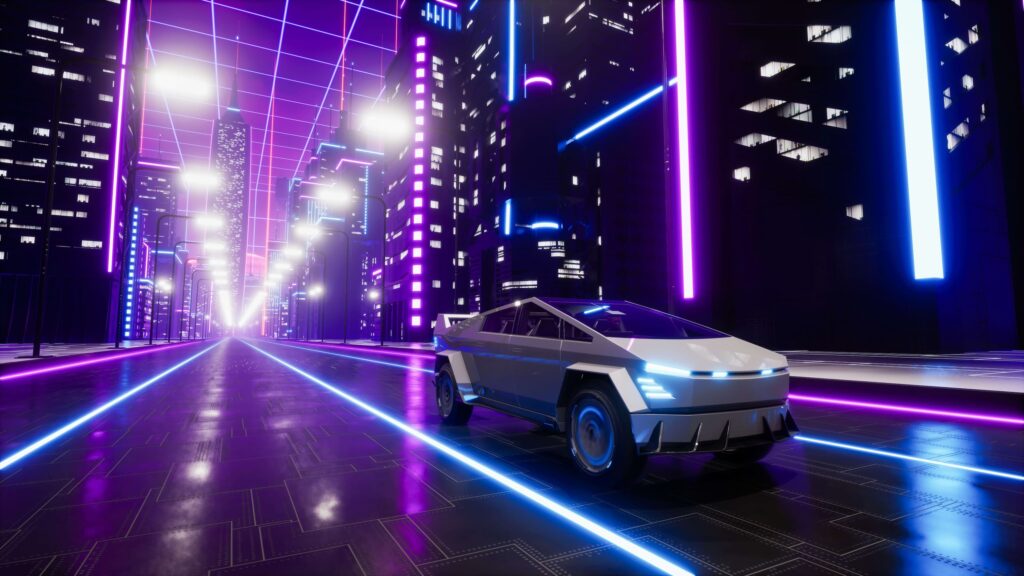
Virtual reality has come a long way, especially in the past decade. And a hypothetical metaverse where we could work, play, and essentially live has long been in the public consciousness. With all these technological advancements, one can’t help but wonder, can VR replace actual reality?
VR can’t replace actual reality as it faces numerous physical, technological, and social limitations compared to the real world. The real world is incredibly complex, and replicating everything in a virtual world to deliver a genuine experience isn’t possible.
VR is a Strap on your VR headset, and let’s explore this topic in more detail as I’ll give you a thorough explanation of where things are headed.
Will VR Replace Reality in the Future?
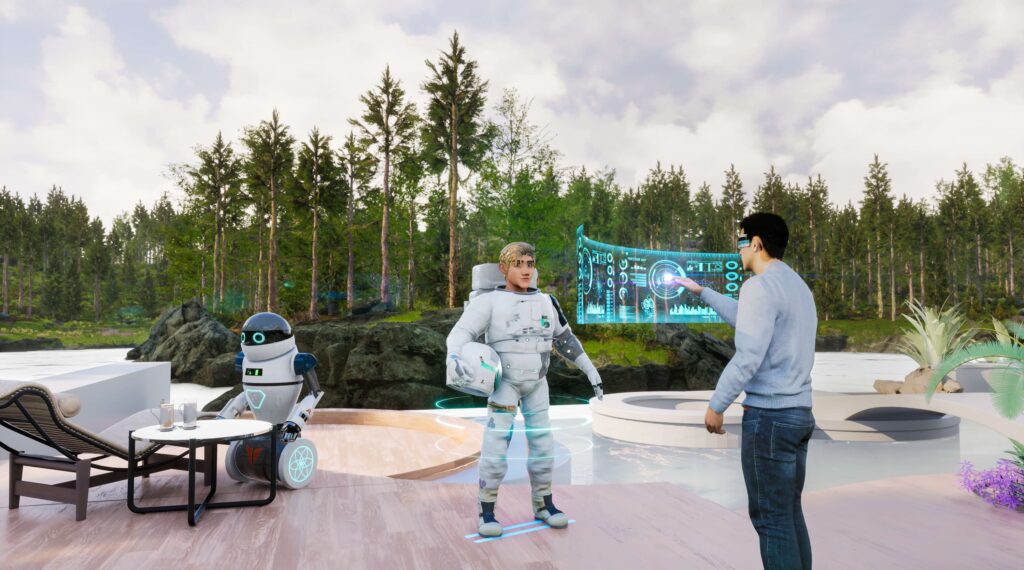
In case you’re not already familiar with the metaverse, it’s a hypothetical virtual world that would simulate all aspects of real life. I also like Avast’s definition, “the metaverse refers instead to a shift in how we interact with technology.” It represents the use of immersive VR technology to replace or supplement aspects of our lives.
As I mentioned in the introduction, users would essentially live in a united metaverse. You could attend business meetings, play tennis, go to your friend’s baby shower, etc. But will that really be enough to replace our regular and real lives in 10, 20 years?
VR won’t replace reality in the future. Even if the technology advanced to the point where it could meaningfully replace aspects of life, it would still be limited. For example, it’s unlikely that it’ll be able to convey the sense of touch, smell, and taste.
Case in point, delivering a pizza in a virtual world sounds more like a fun role-playing game rather than an actual job. Good luck trying to “swim” or climb a mountain in a virtual world.
Aside from the severe physical limitations, there are some serious social restrictions. Although online dating is nothing new, humans are social beings that seek meaningful face-to-face interactions and physical touch.
Instead, VR could be an excellent way to stay in touch with a loved one temporarily during a long-distance relationship.
There are some technical challenges as well.
Is There Anything That VR Has Already Replaced?
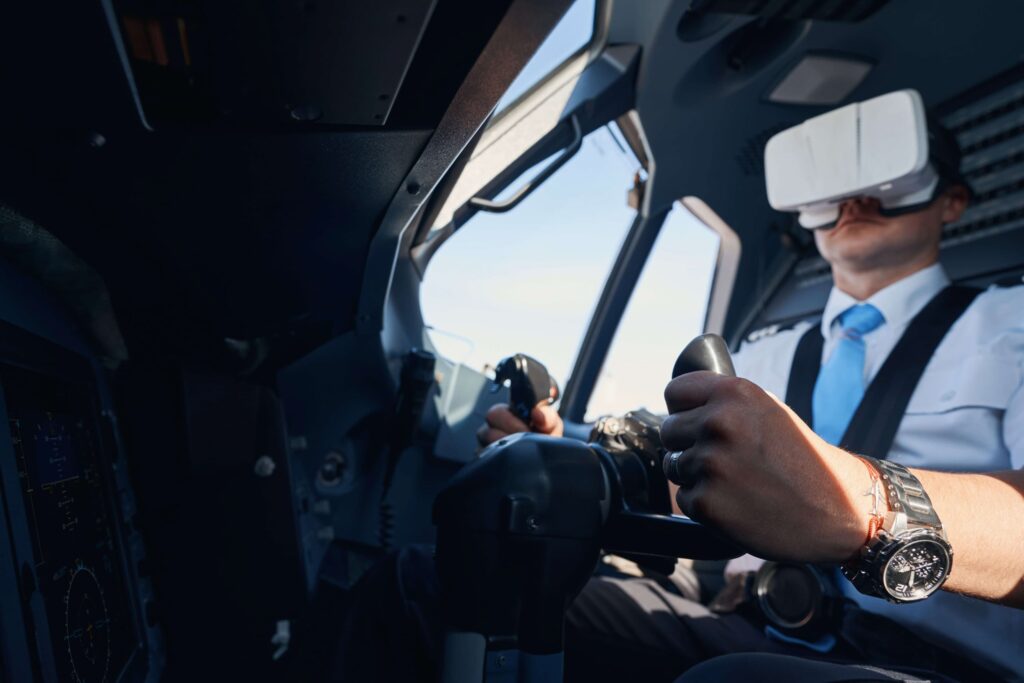
VR hasn’t replaced any particular part of our lives. However, it has significantly impacted training, simulation, entertainment, education, architecture, tourism, and therapy. VR can provide a safe representation of various situations and environments.
You could make a joke about how X airline trains pilots using Microsoft Flight Simulator to learn to fly. However, this is a very real scenario, as flight simulators can provide a fairly realistic and immersive flying experience.
Training for pilots, soldiers, firefighters, first responders, surgeons, and many others is expensive, risky, and hard to execute. VR bridges that gap, allowing these professionals to familiarize themselves with their new work environments.
VR isn’t meant to be a complete replacement. Many jobs require significant supervised hands-on experience. Still, training in immersive simulated scenarios is significantly better than living through them.
For instance, firefighters can learn how to look for exits in burning buildings without ever having to step foot into one. Pilots can get a pretty good idea of what flying looks like from start to finish. The possibilities are endless.
Some other examples where VR has made a significant impact include:
- Business meetings. Conducting business in VR is currently similar to video calls, but it’s likely to become more immersive as the technology improves.
- Architecture and design. Creating 3D buildings, prototypes, and other types of projects in VR allows users to review their work in more detail.
- Tourism. Much of tourism involves simply looking at historically significant locations and objects. VR can provide a cost-effective yet engaging alternative.
- Therapy. VR is already being used in therapy to help patients overcome their fears through exposure therapy and to express their emotions.
If there’s one aspect where VR has truly excelled, it has to be gaming. While it’s unlikely to ever replace traditional screens, which also provide a unique experience, VR excels at immersion.
As we see more triple-A VR games like Half-Life: Alyx, it’s only a matter of time before VR gaming becomes mainstream.
After all, VR has already replaced traditional gaming for some.
What Are Some Things VR Will Never Be Able To Replace?
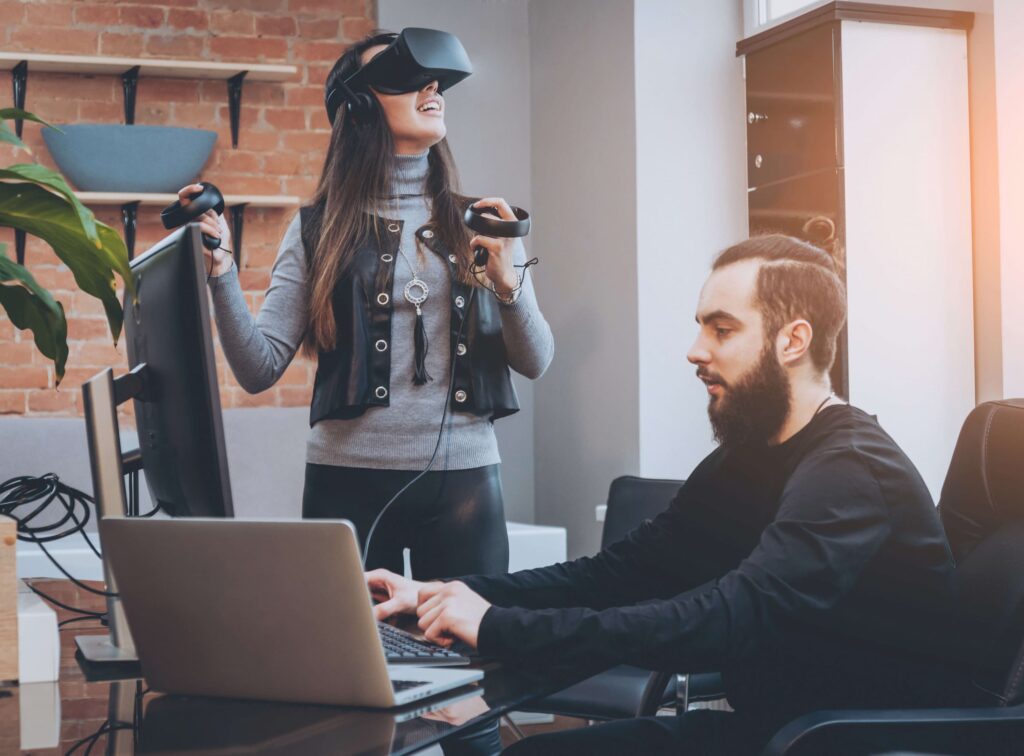
Now that I’ve outlined some areas that VR has transformed, let’s talk about its shortcomings.
VR will never replace real-life physical sensations, unpredictability, and authentic environments to give a genuine multi-sensory experience. VR is immersive but can’t replace many basic human needs. VR’s strength is in simulating realistic visuoauditory experiences.
In addition to these experiences that all of us go through, VR can’t replace many jobs that involve anything physical. Sure, it could replace going to therapy when going in person isn’t possible, but VR can’t replace a physical exam.
It goes without saying that most jobs can’t be done in VR. Essentially, if you can’t do it on your computer, you can’t do it in VR, either.
VR also can’t replace highly creative professions — you can’t really play guitar or paint on canvas in VR. Sure, it might be able to simulate it, but it’ll never be like doing it for real.
I previously mentioned that VR can do pretty solid virtual tours. But seeing historical monuments like the Colosseum in person is a whole other experience.
This is also true for nature. Assuming the graphics are good, you could take a walk in a forest in VR that looks decent. However, you can’t feel the fresh air filling your lungs and the fallen leaves under your feet. It’s a multi-sensory experience that’s impossible to simulate.
Moreover, spending too much time in VR could lead to some serious consequences for a user’s physical and mental health. It could lead to isolation from the outside world. A lack of daylight leads to disturbances in one’s sleep/wake cycle, seasonal depression, and a host of other issues.
Is There a VR Project That Wants To Replace All Aspects of Reality?
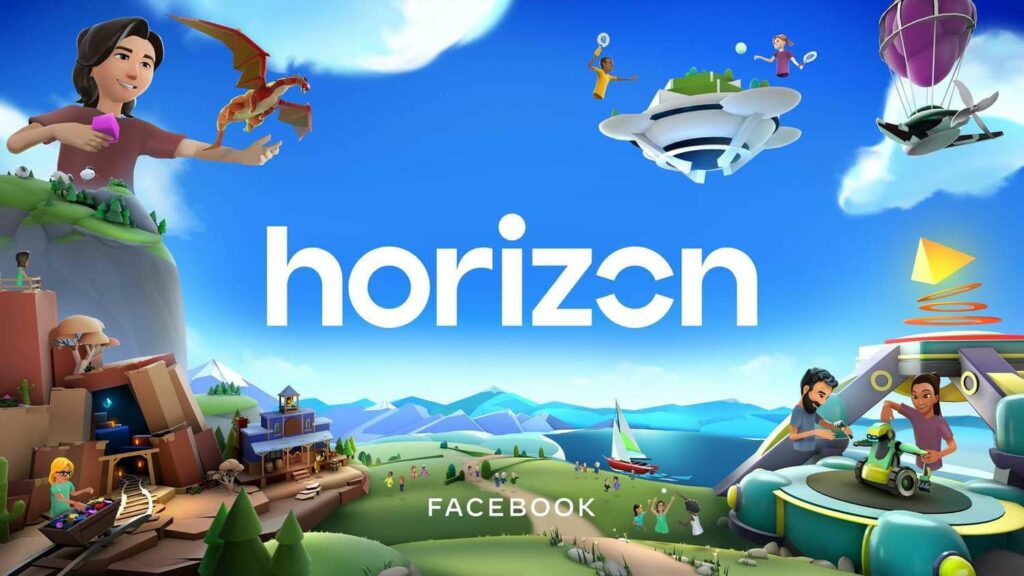
The closest we have to a hypothetical metaverse is Horizon Worlds, which is Facebook’s attempt at creating a virtual world. While Horizon Worlds offers an immersive experience with various activities, it still lacks many aspects of real life that would turn it into a meaningful experience.
Horizon Worlds is quite ambitious. For instance, they have added tools that allow users to sell virtual items for real money. The final goal would be to allow users to buy property, attend meetings, dress up their avatars, interact with friends and family, and so on.
Some other examples of virtual worlds where you can do various activities in VR include:
- Decentraland
- Second Life
- Minecraft
- Roblox
But all of these VR projects either are (Minecraft and Roblox) or resemble video games. Sure, they allow you to play minigames, interact with friends or business partners, and make and spend money, but it’s all surface-level.
These projects all face the same drawbacks of VR — they inherently lack depth. Aside from the physical limitations, you can’t replicate the nuances and complexities of social interactions.
Still, some users take these virtual worlds seriously and spend many hours in them, trading items, playing games, and interacting.
Some experts speculate that the metaverse may completely change our work environments in the near future.
In theory, strapping on a VR headset instead of commuting to work could be appealing.
However, if any issue arises that requires your physical presence, things could go very wrong very fast. Or, at the very least, you’d lose productivity because of technical limitations or difficulties, like your internet going down for 30 minutes.
Overall, it remains to be seen whether virtual worlds can simulate certain aspects of life to the point where VR could replace them. It might not replace reality, but working 1 out of 5 days exclusively in VR would still make a meaningful difference.
Final Thoughts
VR faces numerous technological challenges that would allow it to replace a part of our lives. The world around us is complex, and it’s hard to tell if we’ll ever be able to recreate it convincingly.
In addition to lacking a multi-sensory experience, VR struggles to replicate social interactions and unpredictable experiences that define our lives. It also poses some ethical and psychological issues caused by addiction to VR and isolation from the outside world.
Sources
- Don’t Panic London: CAN VIRTUAL REALITY EVENTUALLY REPLACE AN ACTUAL REALITY?
- GenZ Her: Can Virtual Reality Adequately Substitute for Actual Reality?
- Servreality: CAN VIRTUAL REALITY BE SUBSTITUTE FOR REAL LIFE EXPERIENCE?
- Basically AI: Will Virtual Reality Replace Reality?
- Incuvo: Can VR Replace Real Experiences?
- Futurism: 7 Incredibly Ambitious Virtual Reality Projects
- Wikipedia: Metaverse
- Avast: What Is the Metaverse?
- VRScout: Horizon Worlds Creators Can Sell Virtual Goods Using New Tools
- Forbes: Virtual Reality Therapy: Everything You Need To Know
- Vaughn College: Virtual and Augmented Reality Shape the Future of the Aviation Industry
- TechTarget: How will the metaverse affect the future of work?
- USA Today: The “Indoor Generation” and the health risks of spending more time inside
Recent Posts
Many people think that virtual reality is just a fad or an expensive toy for gamers with too much disposable income. However, this couldn't be further from the truth. VR is already changing the world...
In the ever-evolving world of technology, Virtual Reality (VR) has emerged as a groundbreaking force, captivating users with its immersive experiences and transforming numerous industries. As the...
